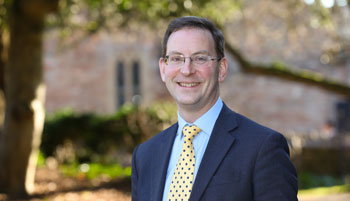Reflections on Remembrance
In our virtual Whole School Assembly last week, Head of History, Chris Eldridge, gave this Reflection on Remembrance, a fitting tribute, in this 102nd year marking the end of the First World War:
Remembrance Day is an opportunity to reflect on the dead and veterans of all wars. It was, as many of you know, conceived in the aftermath of the First World War, hence the choice of the 11th November, the date that war stopped. Not a single person alive today fought in that war, the last was Harry Patch who died here in Wells in 2009. Very soon the same will be true of World War Two veterans – in Britain perhaps 100,000 remain alive today of the 5 million plus who served – the youngest veteran alive today is 92. You may know one or more of them, I am sure a lot of you have heard of the wonderful 100 year old Captain Sir Thomas Moore who recently raised over £32 million for the NHS during Covid, and of course our own Queen is the sole remaining head of state in the world today who served in the war. It is their legacy I would like to explore today, whilst this frail bridge of human memory endures, connecting us to those extraordinary events of 1939-45.
World War Two, which ended a little over 75 years ago, was a very different war to World War One, fought by different people. Britain’s leaders, desperate to avoid a repeat of the slaughter of World War One opted for a technological war, avoiding the mass deployment of troops where possible and instead trying to win via the mass deployment of machines such as the thousands of heavy bombers who pounded Germany’s towns and factories. But machines still need crews and there were still heavy losses – 44% of the crews of these bombers died, whilst some intensive combat was unavoidable – British soldiers, sailors and airmen and those of Britain’s colonies fought all over the world – the skies over Britain herself, the waters of the Atlantic, Mediterranean and Pacific, the jungles of Burma, the deserts of Africa, the mountains of Italy and in the largest quantity of all, the hedges and fields of northern Europe following D Day. Overall a little over 382,000 service personnel were killed, plus another 67,000 civilians caught in German bombing raids. Not as many as World War One, in that Churchill and his government were successful, but a tragedy nonetheless.
What I find fascinating about this extraordinary generation, my grandparents and your great-grandparents, is just how like us they were. By 1939 British people were not dissimilar to how they are today – they could vote, they had rights, they had informed opinions and most were anything but happy about the prospect of going to war. Yet when the British government conscripted the entire adult population, overwhelmingly they went willingly. And in a new departure it was the entire population – women as well as men. British women did not fight in the front line in World War Two, but they served and were exposed to danger and drudgery in a hundred different ways – women were drafted into farms and factories, into hospitals, and even into incredibly secret and skilled roles such as secret agents in occupied Europe and working on the vital Bletchley Park decoding centre.
There is a lady called Joan in my parents’ village whom I have known since a child and is now in her late 90s, what I did not know until recently is that she served at Bletchley Park during World War Two using the very first generation of computers to decipher the German Enigma code machine, possibly the single most important contribution Britain made towards wining World War Two. And yet typical of her generation, she is shy of her war service and has only reluctantly described it for the sake of preserving its memory. I remember my own granddad was just the same, as a teenager he joined a newly formed infantry regiment in the immediate aftermath of the German invasion of France in 1940. Hastily trained and having fired precisely seven bullets he and his colleagues found themselves manning forward defensive positions in Kent against the German invasion that thankfully never came. He did however have a front row seat for the Battle of Britain aerial war that was raging above his head and on one occasion ended up helping rescue a German pilot from his downed aircraft. He was shot in the end, but by his own side, by a friend of accidentally left the safety catch off his rifle. Happily he lived to tell the tale but I can still remember him showing me fragments of the bullet still lodged in his hand fifty years later.
We must not neglect those of other countries from our remembrance. Whichever side they fought on, the vast majority were ordinary decent people, like our own ancestors, conscripted against their will and forced to fight. They also suffered and died and were shaped by the war in innumerable ways – there are still a scattering of Italians alive in Wells today who were taken prisoner by the British in the North African desert and ended up here in prisoner of war camps – they liked it so much they never left. And let us also remember civilian victims – it would be utterly wrong for instance to remember the bomber crews of the Royal Air Force without also giving thought to the victims of bombing – a horrendous 410,000 Germans civilians at least.
Yet if the dead are alike in our remembrance, the causes they fought for should not be. Let us be clear, this was a moral war fought against some of the most brutal, callous regimes ever to exist on earth. Our ordinary ancestors’ sacrifice saved the world from an extraordinary nightmare of slaughter, exploitation, and hatred. One British infantryman, immortalised on film in 1945 and visibly shaken from what he had just found at the concentration camp of Bergen Belsen, to my mind speaks for all of his generation: ‘Now I know what I am fighting for’.
Our current circumstances render commemoration difficult, I for one would much rather speak to you properly than through a screen. Yet our privations at present, small though they are in comparison to the wartime generation, are nonetheless pertinent to our act of remembrance this year. If we treat the frustration, uncertainty, artificial restraint and fear that have tainted this year as a microcosm of the feelings and experiences our ancestors, then we are a little further along the road of understanding what these extraordinary men and women went through during those extraordinary six years of World War Two.
I’d like to close with the famous epitaph, inscribed on the memorial to the fallen of the British 2nd Division at Kohima in north East India: ‘When you go home, Tell them of us and say, For your tomorrow, we gave our today’.



